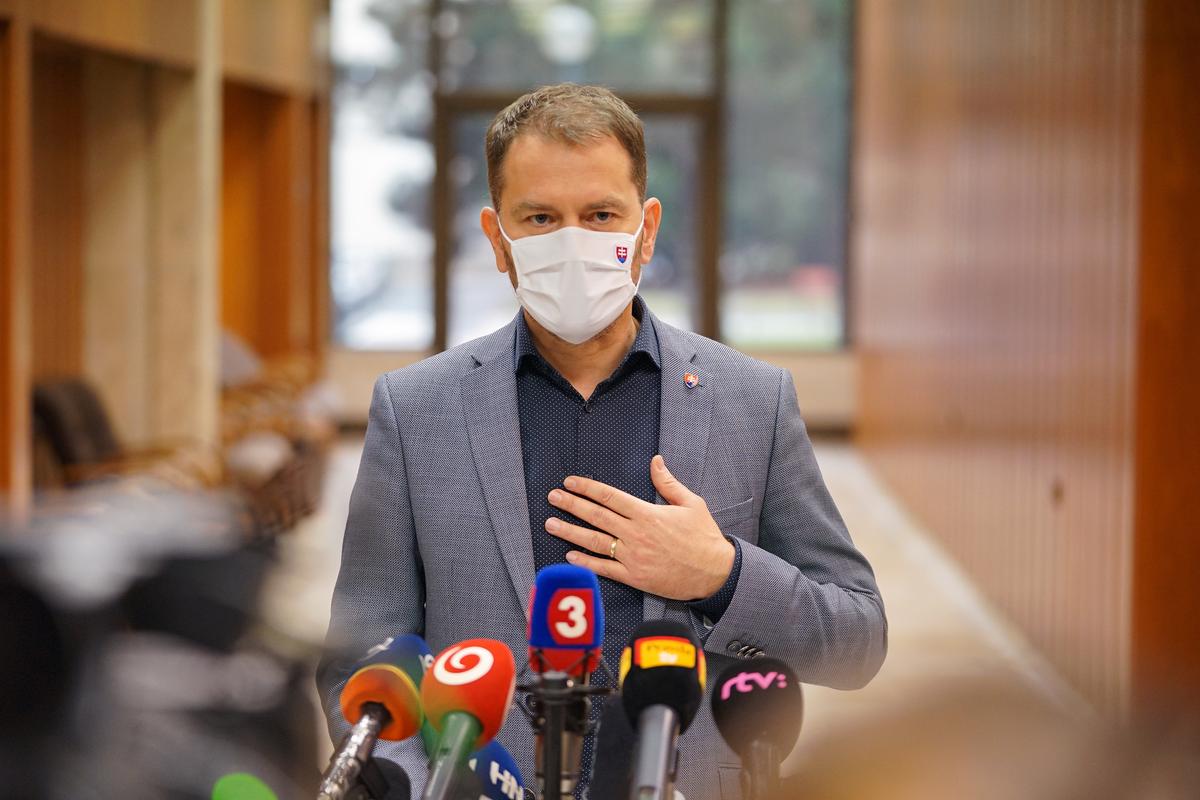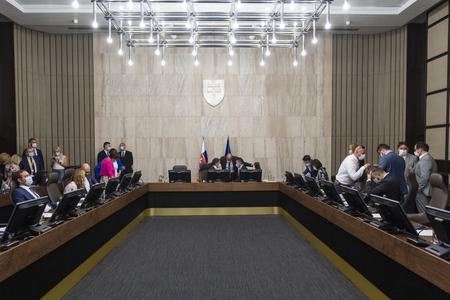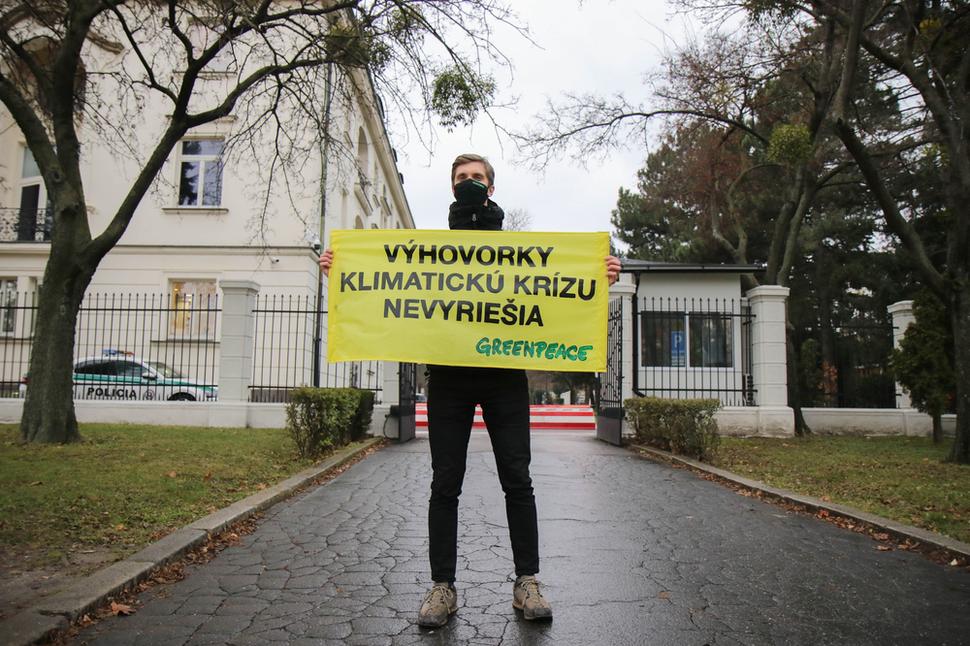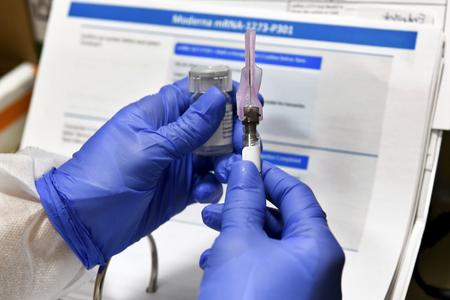This is your overview of news from Slovakia on Monday, December 7, 2020. For a deeper insight into the current affairs, read Last Week in Slovakia published earlier today.
Today in Slovakia is a free-of-charge service for our readers. If you want to support us, become a subscriber and get access to more detailed news and interesting feature stories from Slovakia.
President critical of PM Matovič
President Zuzana Čaputová has been quite critical of the government led by Igor Matovič (OĽaNO) and the chaos accompanying its fight against the coronavirus pandemic.
In her opinion, PM Igor Matovič (OĽaNO) should consider charging some other cabinet member with managing coronavirus-related matters. He would then have time to deal with other agendas, like the impact of the pandemic.
“We wouldn’t be the only one in Europe, quite the opposite,” Čaputová said, referring to the examples of the Czech Republic and Germany.
She said measures should be rational, objective and based on scientific facts.
“We’re missing a plan and clear steps. We’re facing chaos whose lieges are children,” Čaputová said, referring to the current situation surrounding the reopening of schools for older children.
Matovič responded that he is not managing the coronavirus crisis, and there is no post he should step down from. He also called on the president to make it clear whose side she stands on.
It is not the first time the two have argued about methods for containing the pandemic.
Rules for national emergency to change
The cabinet has proposed some changes to the declaration and prolonging of national emergencies.
Currently, it is possible to declare a national emergency for 90 days only. Under the new rules, it should be possible to prolong it repeatedly for no more than 40 days from its December 7 session. Every decision on prolonging the national emergency will have to be approved by the parliament within 20 days after the national emergency is prolonged.
The cabinet also plans to change the rules for setting limitations and duties.
The respective legislation needs to be approved by the MPs, who will discuss it in a fast-tracked proceeding.
Although the cabinet proposes a safety measure against abusing the rules, the opposition has been critical.
Other coronavirus-related developments
The number of coronavirus-related deaths exceeded 1,000 on December 7. The labs identified only 552 positive cases out of more than 3,400 testscarried out on Sunday.
New rules for cross-border commuters came into force on Monday. They now need to show a negative antigen or PCR test result no older than 14 days.
Several schools across Slovakia, for example in Bratislava, Trnava, Stará Ľubovňa and some municipalities in the Orava region, attended the weekend antigen testing of pupils, their parents and teachers in order to open classrooms for pupils of the fifth-ninth grades of primary schools and students of secondary schools. The schools can start opening if their founder decides, but children, at least one of their parents and school employees need to provide a negative antigen or PCR test result no older than seven days.
The owners of restaurants, bars and cafés in Košice plan to open at least 40 facilities on Tuesday, December 8, pointing to the bad situation and problems caused by the second pandemic wave. Also, fitness centres, which can be open with limitations, want to join the protests.
Slovak scientists have called on people to be careful before Christmas. Without fundamental measures, the number of new COVID-19 patients in hospitals could increase by nearly 5,000 during December.
Picture of the day:
Environmental organisation Greenpeace launched a 65-hour strike in front of the Government’s Office. Its members want PM Igor Matovič (OĽaNO) to support the reduction of emissions by 65 percent by 2030 at the upcoming summit in Brussels.
Feature story for today:
Since the first outbreaks of COVID-19 around the world earlier this year, experts and the public alike have been eagerly following the development of a vaccine that could put an end to the pandemic.
The last few weeks have seen a flurry of news on vaccine development. Three major vaccine projects have announced trial results and have applied to regulators for their use in the US and Europe.
Some countries, including Slovakia, are now drawing up plans to vaccinate their own populations.
“Vaccination could have a significant impact on, and change the whole development of, the coronavirus pandemic,” chief hygienist Ján Mikas told the media on December 1.
In other news
The Specialised Criminal Court decided on the pre-trial custody of Milan Lučanský and another six people arrested during the Judáš (Judas) police operation, on December 6. Authorities worried that they would try to influence witnesses and continue in their criminal activities.
The Specialised Criminal Court found Sergei Salmanov and his son Alexander guilty of bribing the head of the tax office in Dunajská Streda (Trnava Region). Sergei Salmanov was sentenced to seven years in prison and financial penalties of €15,000, while his son will spend six years in prison and pay €10,000. The court originally acquitted them of charges back in 2015, but the Supreme Court overturned the verdict.
The Justice Ministry needs to pay nearly €90,000 to Štefan Harabin, as compensation for the sum he lost after the 2011 disciplinary punishment.
InoBat Auto received permission to build its research and development centre in Voderady, near Trnava, meeting all criteria set within the environmental impact assessment process. It plans to launch the construction in the first quarter of 2021.
IT company Cisco will purchase Slovak startup Slido, which gained fame after introducing its software for interactive communication at conferences.
The Hungarian low-cost airline Wizz Air restored flights from Košice to London on December 5. Meanwhile, several airlines revealed their plans for the next summer season, with several flights dispatching the airport in Bratislava.
The criticised bank levy will definitely be cancelled on January 1, 2021. President Zuzana Čaputová signed the respective proposal into law.
This year’s deficit would surge even despite the coronavirus pandemic, according to the Council for Budget Responsibility. The virus has impacted the 7.2-percent deficit by slightly more than a half; a further 3.3 percent is a deficit of items unrelated to the pandemic.
No Data Waste in Košeca project received the Innovation in Politics Award 2020 in the Digitalisation category.









